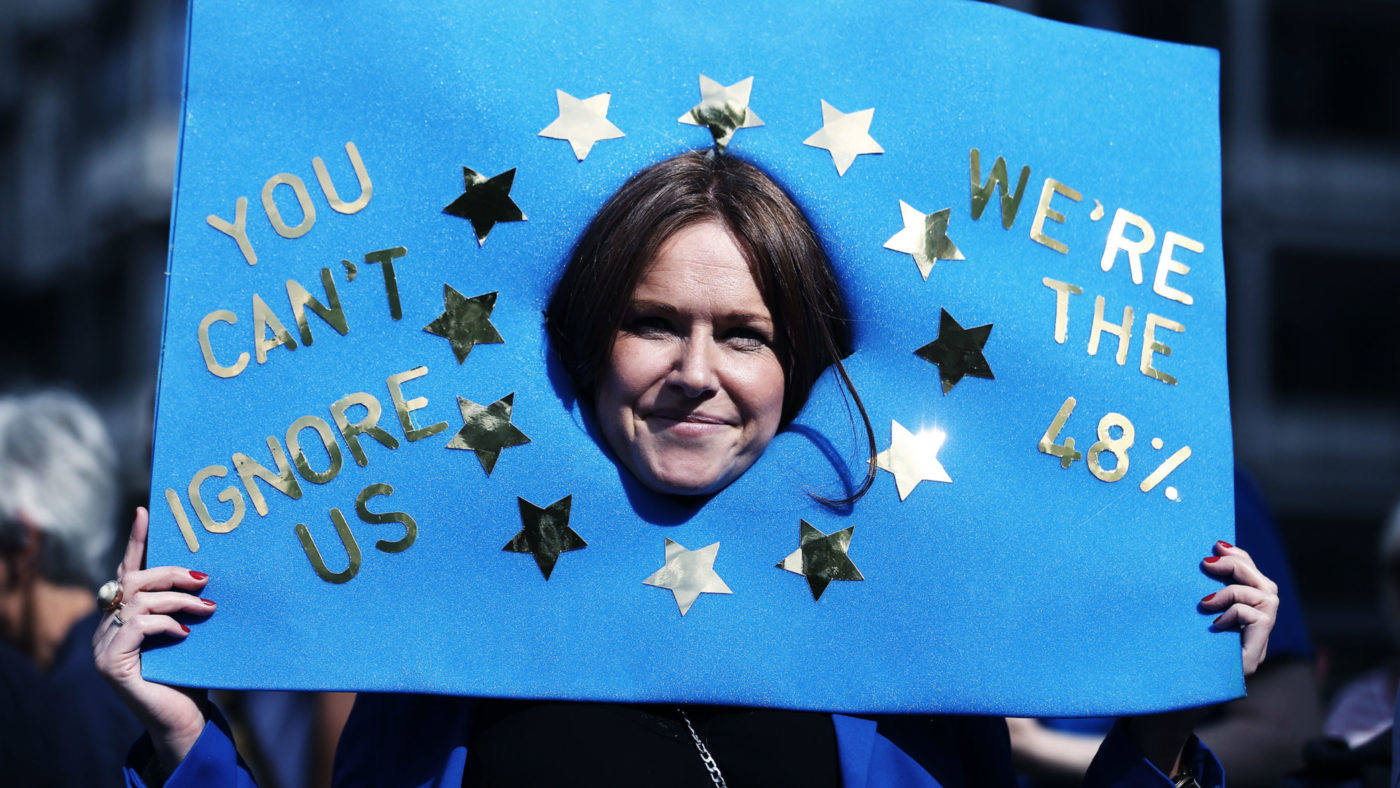In a week when Theresa May’s government sought to reboot its Brexit plans, those Remainers dedicated to the (legitimate but ill-advised) campaign to block Brexit decided to reheat one of their most obnoxious and noxious claims.
I am referring to the argument that the 2016 vote has become increasingly invalid because – to put it bluntly – those who voted Leave have been dying out. The latest Remain-supporter to build a campaign group on the back of the fact that their opponents are closer to grave than cradle is 27-year-old Femi Oluwole, the co-founder of Our Future, Our Choice. According to Oluwole, “In five years’ time, by absolutely anyone’s maths, we will have a population that voted to Remain in the EU.”
Demographics are at the heart of the Brexit-reversal movement. In the eyes of under-30s like Oluwole and their ageing co-conspirators like Nick Clegg, Andrew Adonis and Alastair Campbell, the 2016 vote was the last gasp of an angry, xenophobic Britain. Clegg claims that the “high point” of Brexit support has passed.
There are serious problems with the fag-packet maths that has Clegg and co so fired up. Most obviously, the twin facts that Britain is only getting older and that our political views change as we age.
But let’s take seriously for a second the idea that if the referendum on EU membership had taken place a few years later, Remain would have romped to victory. Let’s use Oluwole’s timeline and consider the following question: would a Remain victory be more likely if the Brexit referendum had somehow been delayed to, say, 2023 rather than taking place in 2016?
The Remainer assumption is that 2016 was, from their point of view, the worst possible time to hold a vote: Europe wracked by concern over migrants, Labour led by a leader who was at best ambivalent towards the Remain campaign and at worst actively hostile.
But it’s not exactly clear how the passage of time would have changed things. You don’t need to be a swivel-eyed Kipper to see just how damaging the combination of hundreds of thousands of new arrivals and a government repeatedly breaking a promise to control numbers has been to public life in Britain. Five more years of that dysfunctional cycle would have chipped away at levels of trust in mainstream political parties and support for the EU.
Then there is the other great issue, of the direction of travel of the European Union – one which was making it an ever less comfortable home for Britain.
Clegg was once fond of mocking the idea of a European Army as a British tabloid fiction. And yet the EU took a big step in that direction when it unveiled its defence pact last year. What would that announcement have done to British views on the EU? I suspect even Clegg knows the answer to that question.
And when Emmanuel Macron set out his vision for the eurozone last September, with a common budget, a finance minister and a parliament, doesn’t it seem likely that quite a few British voters would have balked not just at that idea, but the whole European project?
In other words, on the two decisive, interlocking drivers of the Leave vote – immigration and sovereignty – the soil would almost certainly have been more fertile for a Leave majority in the hypothetical 2023 referendum than in the actual 2016 vote.
The point of this thought experiment is to show that the hardcore Remainers’ obsession with the speed at which old Brexiteers are dying isn’t just creepy. It’s a dead end.
Yes, the Brexit blockers are upbeat at the moment. They are better organised and better funded than at any time since the referendum, with grand plans to force a second vote on Brexit.
But the truth is that Europe was already moving away from Britain, and has continued to do so since we voted Leave. The thing we left isn’t really there for us to return to – something which will become ever more the case as Britain and Europe continue down their separate paths.
The ultra-Remainers aren’t traitors or quislings or any of the other unhelpful insults that have been slung their way. They’re just labouring under a misapprehension about what Britain thinks about Europe, why it voted Leave in 2016 and the options on the table now. And by focusing their energy on reversing Brexit rather than improving it, they have only made more likely the hardest of hard Brexits that they fear the most.
This article is taken from CapX’s Weekly Briefing email. Sign up here.


